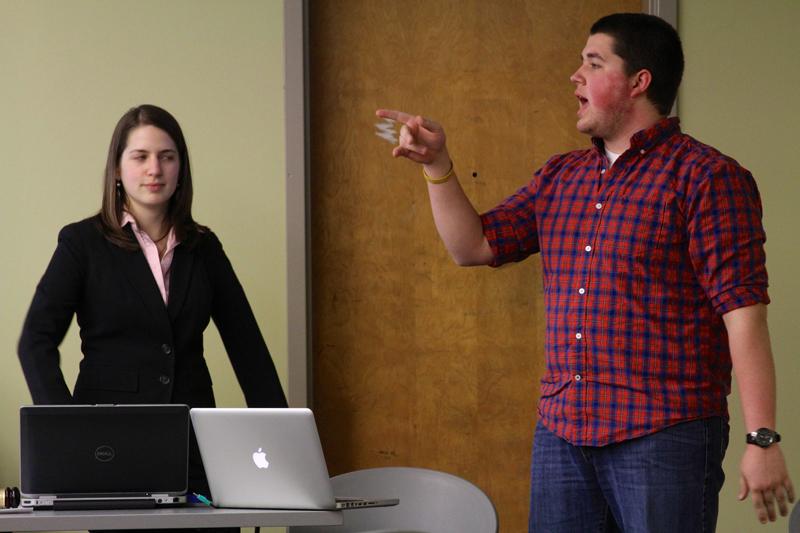A week after unanimously voting on a residence hall fine appropriation amendment, a Residence Halls Association committee met again Monday evening to discuss rewriting the amendment.
The amendment proposed last week would reorganize the appropriation of hall fines from the organization’s scholarship fund to the portion of its budget used for filling resident funding requests.
The RHA Operations Committee discussed the status of the amendment and possible improvements that could be made to better achieve the goal of ensuring fine revenues benefit hall residents.
The discussion began with an announcement from the bill’s author, Operations Committee Chairman Lane Adams, that he was withdrawing his original amendment after discussing factors, such as possible budgetary consequences of its passage, with RHA President Zack Folk and other members of the executive board.
“Zack Folk told me there were problems with my original (amendment), conflicts with different things and confusion about what the (amendment) is saying,” Adams said. “I realized the current bill wasn’t the best way to go about things.”
Adams explained he had come to the conclusion that more discussion and ultimately a new, revised bill would be needed to effectively achieve the goals of the original amendment.
He then read a second, updated bill which presented an evolving, but still incomplete, he acknowledged, understanding of the hall fine appropriation issue, which he had written prior to the meeting. The ensuing discussion focused on clarifying the organization’s current usage of hall fines and procedures for administering and funding its scholarships.
Those in attendance ultimately reached a consensus that the best approach to addressing the fine allocation issue would be to pass separate bills stipulating how to fund scholarships and utilize fine revenues.
RHA Advisor Luke Gorham clarified that the organization is currently funding its five $1,000 scholarships with money from its own budget, even though hall fine funds are allocated to the scholarship account. He explained the organization does this to make sure it can fund $5,000 in scholarships even if it does not raise this amount in hall fines.
Gorham said revenue remaining in the scholarship fund over the $5,000 amount is supposed to be used for legislative distribution. The organization has not been reallocating extra scholarship funds into the legislative distribution budget, leaving them to roll over into the next year’s general RHA budget.
“Since we have, in practice, been funding these scholarships directly, it would probably make sense to directly fund the scholarships as a line item,” Gorham said.
After the meeting, Adams expressed his satisfaction with the progress of the discussions and hope that the final bills would be ready for a vote at the next RHA Congress.
“Today we just scrapped the idea for the two original bills and decided on writing a line item to mandate and address the funding of the $5,000 scholarships from our budget,” Adams said. “I am now setting about authoring a bill with three co-authors that would set in stone allocation of scholarships and using fines to put them into the legislative fund so residents have access to the entire fund they are promised.”
Folk also expressed approval of the discussions.
“I am glad to see this issue being worked out and people reaching the same conclusions,” Folk said. “This is still in a beginning stage, but it is moving toward a good conclusion and I am happy to see the focus on transparency with the organization.”






